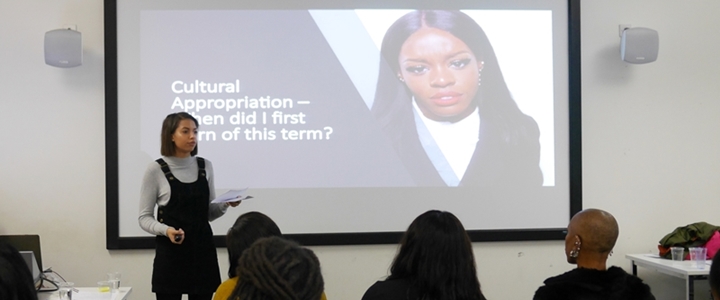As a Black student, I feel that during my degree there were not enough topics that I could engage with. But in my final year I was inspired to focus on hip hop after completing a unit called Media Inequality, which touched on things that really interested me such as race, gender and class.
I’ve always been following hip hop music, but learned so much more about it through my dissertation. It’s multidimensional and encompasses everything from music to film and fashion.
My study is focused on exploring hip hop’s cultural influence on Black British men and women. I wanted to examine the perceptions they hold on how hip hop is represented in media, popular culture and communication practices such as advertising and marketing.
I used critical race theory as a conceptual approach, because its key principle is that racism is deeply ingrained in society and has become normalised. I chose CRT because it enables Black experiences to be examined in a critical context.
On completing my assignment, I felt a sense of relief and satisfaction, but was exhausted from the countless late-night sessions. However, I was rewarded with a much deeper understanding of hip hop such as:
- It influences consumption, especially fashion, through music videos and social media platforms
- It is a positive tool that inspires, empowers and uplifts followers
- It’s political apparatus that speaks to issues within the Black community such as police brutality
I had the pleasure of presenting my study at a student conference. It was a great experience and good opportunity to discuss hip hop and race in an academic environment.
I learned a lot through the study and would like to contribute more to the understanding of hip hop by exploring sub-genres. Hip hop is a genre that is composed of different musical styles such as feminist rap, alternative rap and trip hop.
I think it’s important to study this further to deepen understanding of the complex nature of hip hop and tackle stereotypes that associate it purely with misogyny and violence.




